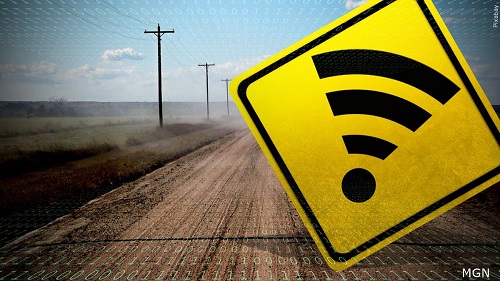
9.7.22 – Jonesboro, Ark. (KAIT)
The Arkansas broadband director is looking at how the state can surpass others with internet connectivity.
Glen Howie recently moved to Arkansas from Louisiana, starting his position as broadband director at the beginning of August.
Talk Business & Politics interviewed Howie and says he has three pillars for the broadband expansion: infrastructure, affordability, and digital literacy, or knowing what can be done with affordable broadband.
“When I’m on the road and I’m talking with folks and, I’ve said this from the very beginning, we can make Arkansas the most wired state in the country with fiber running to every single home and business across the state,” said Howie. “But if our Arkansans can’t afford it, that’s a problem. Likewise, we can run the fiber, we can make it free, but if Arkansans don’t possess the digital literacy skills that they need to properly use the internet and computer and devices, or simply don’t understand the value that it can create for their lives and truly impact them, we need to work on that as well.”
The state legislature did a recent study that found approximately 110,000 households in Arkansas are lacking true broadband. Officials say it could cost around $600 million to get these homes connected.
According to Howie, the 2021 Infrastructure Investment and Jobs Act will give the state about $1.2 billion for broadband purposes. If we use $600 million of that act can to wire the more remote households, Howie says the state needs to be innovative on what to do with the other half of the funding.
“Affordability is a very complex issue, right?… We can’t set prices, that would go against the law and that’s undoable, so you look at the sort of unique things that you can do. When we run our grant programs and grant applications, moving forward, you’re going to notice that there will be an affordability component of a pricing structure and scoring metrics that we’ll use,” said Howie. “So, as applications are graded and scored and ranked against each other, on paper, they should be able to compete against each other, to bring down their prices, to gain more points in their applications, which will then be more likely to get funded.”
He referenced a federal program that subsidizes about $30 per month for qualified Internet customers, saying he likes the idea of an affordability trust fund that would be on top of the federal affordable connectivity program.
“It may be possible to do an [Arkansas] affordability trust fund with some of the funds that we will receive from the federal government as a portion of the IIJA infrastructure bill,” said Howie.
You can watch Howie’s full interview HERE.
Copyright 2022 KAIT. All rights reserved.
